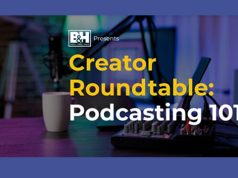
Jeffrey W. Hayzlett served four years as the chief marketing officer and vice president of Eastman Kodak, reporting to chairman and CEO Antonio M. Perez. As CMO, Hayzlett was responsible for the company’s worldwide marketing operations, including the design and implementation of all marketing strategies, investments, policies and processes. He led Kodak’s efforts for Strategy and Planning, Marketing Programs, Marketing Network Operations, Brand Development and Management, Business Development, and Corporate Sponsorships, and he was responsible for Corporate Communications, Public Relations and Public Affairs organizations.
In May 2010, Hayzlett announced his intention to resign from Kodak to pursue personal projects. These projects included a well-received book, The Mirror Test: How to Breathe New Life into Your Business, written with Jim Eber. Below is an excerpt from The Mirror Test*.
You Need a “118”
I had him. I knew it. I had been ready with my pitch and when I got him on the phone, I sold him big-time. But as soon as I heard he was hooked, I stopped. I didn’t try to close the sale then and there. Instead, I tried to better position myself to take advantage of his interest and asked him for a bit of time a few days later.
“Well . . .”
“Let me ask you, are you an early morning person or an afternoon person?”
“Morning.”
“Great, so are you a coffee or tea man or do you like juice or water?”
“Coffee.”
“Milk or cream? Light or dark?”
“Milk, light.”
“Bagels, donuts, muffins or cottage cheese?”
“Bagels.”
“Great. So I’ll see you Tuesday morning at 7:15. I’ll bring bagels and coffee and give you a 15-minute presentation of my product as you eat your breakfast.”
Once again, my “118” had succeeded. Now, I could close the sale the way I like: in person.
The 118 is my version of what some people still call “the elevator pitch”—an out-of-date name for the worthy idea that you need to sell what your company offers (and you) in the span of an elevator ride. Problem is that time used to mean up to three to five minutes. Now, it’s mere seconds. Technology has not only made things (including elevators) move faster but also has increased the need for speed and immediate relevance in pitching. You have seconds before I tune you out and maybe two minutes after that to completely sell me with your initial pitch.
The 118 comes from the 118 seconds you actually have to pitch: eight seconds to hook me and up to 110 seconds to drive it home—less than two minutes with only seconds to spare. The first eight seconds is the length of time the average human can concentrate on something and not lose some focus. It is also the length of time of one of the toughest rides in the world: a qualified ride in professional bull riding. In these first eight seconds, you must be compelling, strong and focused to be successful. You must hold on as one of the meanest, toughest animals in the world tries to throw you off—just like any good prospect will. Make it those eight seconds, and I’ll give you 110 more to drive your message home with no bull. But if you have not sold me at the end of the 118, I will start to tune out. At that point, we are moving forward to a sale or not.
I speak at hundreds of meetings, conferences and events worldwide every year, and I am constantly amazed by the inability of entrepreneurs, business owners, their managers or their sales and marketing representatives to deliver a great, relevant 118.
The 118, like the elevator pitch before it, sells much more than a business’s products or services and unique selling proposition (USP). It is an essential piece in building your brand. It conveys who you are, the assurance your business offers, and the promises you will deliver on. Think you have a brand? Brand is the biggest business buzzword, but what does it mean? To me a brand is just a promise made and kept to a customer. Your 118 helps define what promises your brand will build or make. It connects every promise you make to those around you. Too many businesses don’t focus on these promises and eventually they not only fail to build a brand, they just fail.
The 118 connects directly to the foundation of every business’s growth. I’m not saying a bad one means certain failure, but I have rarely seen a good one deployed in the right way fail to help a business grow. How could it not? It conveys to anyone what he or she will get from your business.
This is usually where people start to nod their heads as if to say, “I know.” But I am not looking for an “Amen.” I’m looking for action. This is proof of life, people, and no time to nod in agreement or say, “I know I should do that” or “I’ll get back to that after I keep reading.” Even when business owners can answer the “Why?” questions (and thus know why they are doing what they are doing), the typical stammering and yammering when I ask for their pitches indicates to me a huge inability to convey what they are doing to their team and customers.
So, put the book down and write down your 118. Even if you have a good one, do it. I’ll wait. . . .
* ©2010 by Jeffrey W. Hayzlett. Reprinted by permission of Business Plus, an imprint of Hachette Book Group, Inc, NY. All rights reserved. The Mirror Test is available at leading booksellers: ISBN 978-0-446-55982-9.





